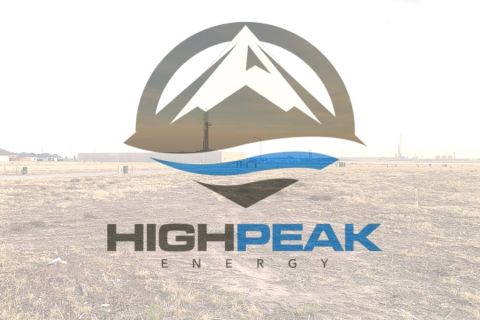Presented by:
Subscribe to receive notifications about new Energy Policy Watch episodes.
Kenneth B. Medlock III, senior director of the Center for Energy Studies at Rice University’s James A. Baker III Institute for Public Policy, recently joined Cornerstone’s Jack Belcher on the latest installment of Energy Policy Watch to give his overall view on where we are today in terms of history as the Russia-Ukraine conflict shines a huge spotlight on the global energy situation including direct impacts to our daily lives.
“When we look at what’s going on on the ground in Ukraine right now, first and foremost it’s humanitarian but there are definitely short-term and long-term implications for energy commodity markets and agricultural commodity markets as well,” Medlock told Belcher.
“This is major,” Medlock continued. “This is not a small issue and it has wide-reaching impacts that will last well beyond the next six months.”
In addition to his outlook on the “energy transitions” and energy security, Medlock also spoke on the critical role of U.S. LNG and the desire by European nations to wean themselves off of Russian gas.
“The credible threat element of U.S. LNG for Russian hegemonic influence is tremendous,” he said noting this is something the Baker Institute discovered a decade ago in a major study on options for Russian gas.
“These are issues that have always been under the surface and bubble up to the top periodically,” he added of the study, “and unfortunately unless we realize that we need to learn from history and take concerted action to abate these types of risks they only get worse as they repeat themselves.”
See below for more on this dynamic discussion between Medlock and Cornerstone’s Jack Belcher on the latest installment of Energy Policy Watch. Editor’s note: This interview was filmed on March 3.
Jump to a topic:
- 2:10 – History of Russia-Ukraine natural gas flows
- 5:55 – U.S. LNG exports to Europe and impact of shale
- 11:30 – “Energy matters”
- 12:50 – Effect of domestic policies on U.S. production
- 15:30 – Fossil fuel divestment, ESG movements
- 18:30 – Impact on the “energy transitions”
- 21:00 – Carbon capture, hydrogen and other innovations
- 24:45 – Rice University’s carbon hub project
- 25:45 – Energy transition initiatives in Houston area
 Kenneth B. Medlock III, Ph.D., is the James A. Baker, III, and Susan G. Baker Fellow in Energy and Resource Economics at Rice University’s Baker Institute and the senior director of the Center for Energy Studies. He is also the director of the Masters of Energy Economics program, and holds adjunct professor appointments in the Department of Economics and the Department of Civil and Environmental Engineering at Rice University. Medlock is also a Distinguished Fellow at the Institute of Energy Economics, Japan, and is a member of the Advisory Board of the Payne Institute at Colorado School of Mines. In 2012-2013, Medlock held the prestigious Haydn Williams Fellowship at Curtin University in Perth, Australia.
Kenneth B. Medlock III, Ph.D., is the James A. Baker, III, and Susan G. Baker Fellow in Energy and Resource Economics at Rice University’s Baker Institute and the senior director of the Center for Energy Studies. He is also the director of the Masters of Energy Economics program, and holds adjunct professor appointments in the Department of Economics and the Department of Civil and Environmental Engineering at Rice University. Medlock is also a Distinguished Fellow at the Institute of Energy Economics, Japan, and is a member of the Advisory Board of the Payne Institute at Colorado School of Mines. In 2012-2013, Medlock held the prestigious Haydn Williams Fellowship at Curtin University in Perth, Australia.
Energy Policy Watch is a partnership between Hart Energy and Cornerstone to bring regular video updates on legislative and regulatory actions affecting the energy industry. Guests range from key representatives or congressional staff to relevant cabinet-level officials and executive branch personnel. View More Energy Policy Watch Episodes Here.
Recommended Reading
BP’s Kate Thomson Promoted to CFO, Joins Board
2024-02-05 - Before becoming BP’s interim CFO in September 2023, Kate Thomson served as senior vice president of finance for production and operations.
Magnolia Oil & Gas Hikes Quarterly Cash Dividend by 13%
2024-02-05 - Magnolia’s dividend will rise 13% to $0.13 per share, the company said.
TPG Adds Lebovitz as Head of Infrastructure for Climate Investing Platform
2024-02-07 - TPG Rise Climate was launched in 2021 to make investments across asset classes in climate solutions globally.
Air Products Sees $15B Hydrogen, Energy Transition Project Backlog
2024-02-07 - Pennsylvania-headquartered Air Products has eight hydrogen projects underway and is targeting an IRR of more than 10%.
HighPeak Energy Authorizes First Share Buyback Since Founding
2024-02-06 - Along with a $75 million share repurchase program, Midland Basin operator HighPeak Energy’s board also increased its quarterly dividend.






